Moooi releases real-life version of "impossible to produce" virtual chair by Andrés Reisinger
Dutch design brand Moooi has partnered with 3D artist Andrés Reisinger to mass-produce his Hortensia chair, which went viral on Instagram as a rendering and become known as "the chair that could not be made".
Initially designed in 2018 as a purely digital piece of furniture, the armchair with its plump, hyper-tactile exterior has now been made into a physical chair covered in 30,000 fabric petals. It is available from Moooi in the original soft pink colour as well as a light grey.
The global release marks what is thought to be the first time that a product designed for the digital world has gone into mass production.
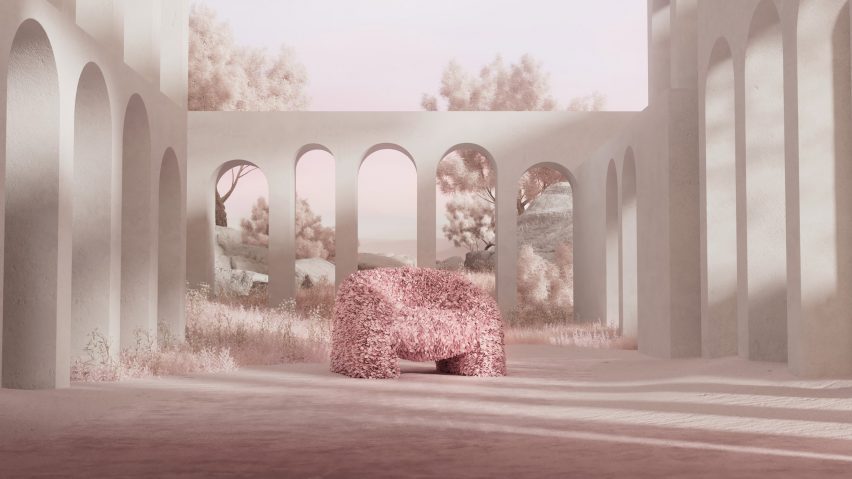
"This is the start of a new dialogue between designers and brands," Moooi CEO Robin Bevers told Dezeen.
"Designers will not wait to be commissioned by brands or abide by their briefings," Bevers added.
"Instead, they will take the initiative and bring their work out there. Brands will be forced to step up, more power will go to the artists and designers, and the world will become a more beautiful place."
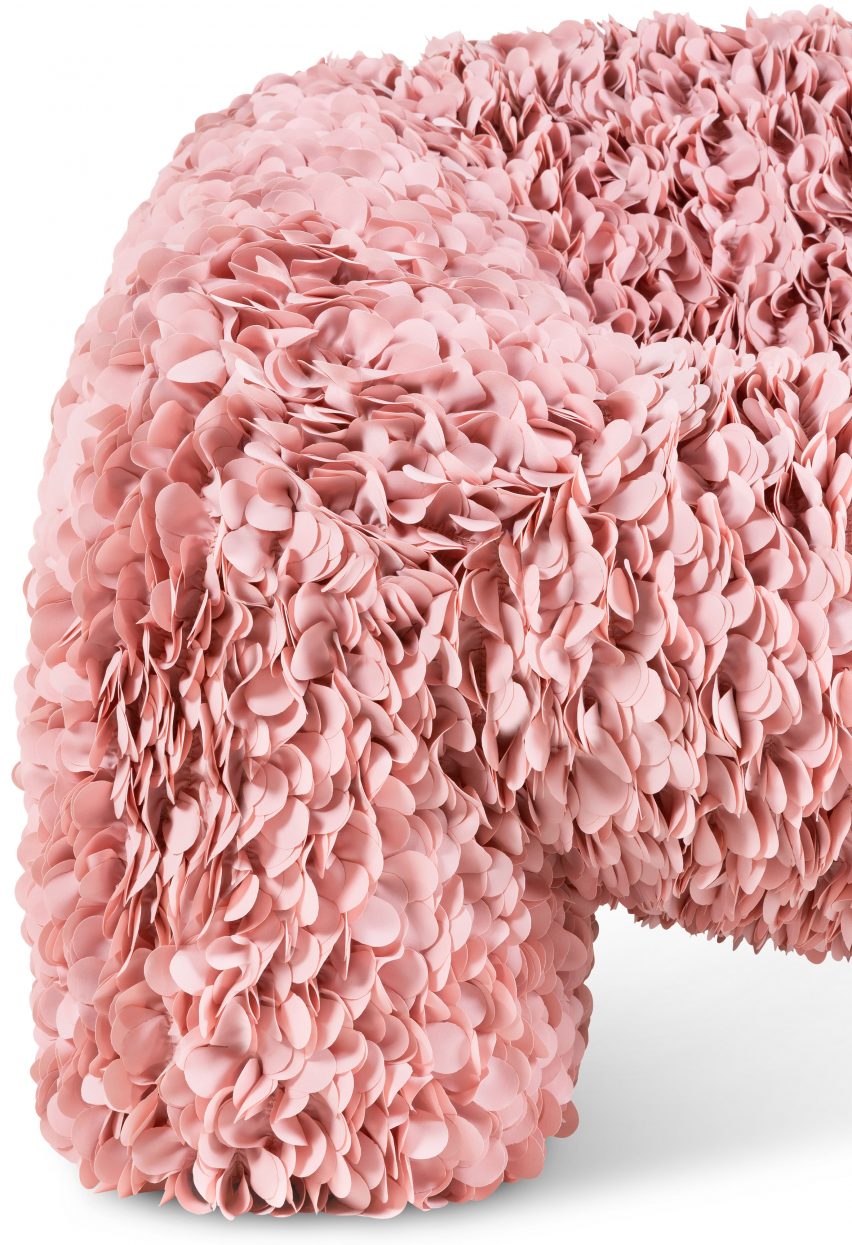
When Reisinger first shared the Hortensia chair on social media three years ago, the viral image prompted several order requests for a chair that did not exist.
To meet this demand, he released a limited edition of the armchair in 2019 in collaboration with textile designer Júlia Esqué.
After being told by different production teams and manufacturing partners that its unique texture could not be replicated in real life, Reisinger and Esqué realised the design by working closely with a small carpentry workshop in Barcelona.
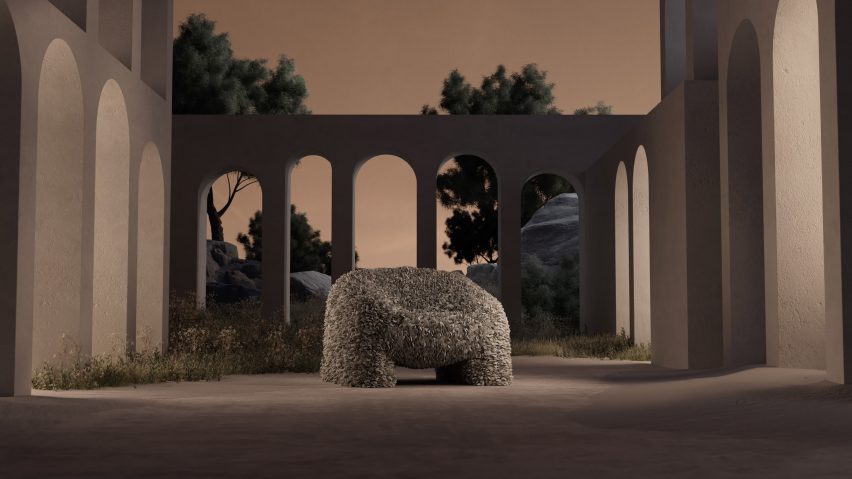
"The limited-edition Hortensia was created entirely by local craftsmen under Júlia's and my supervision – we were guiding the artisans from the prototype phase till the very final result," Reisinger explained.
"The structure of the piece was made from wood, which was covered with sculpted foam. And finally, we came up with a specific textile system that was upholstered all by hand."
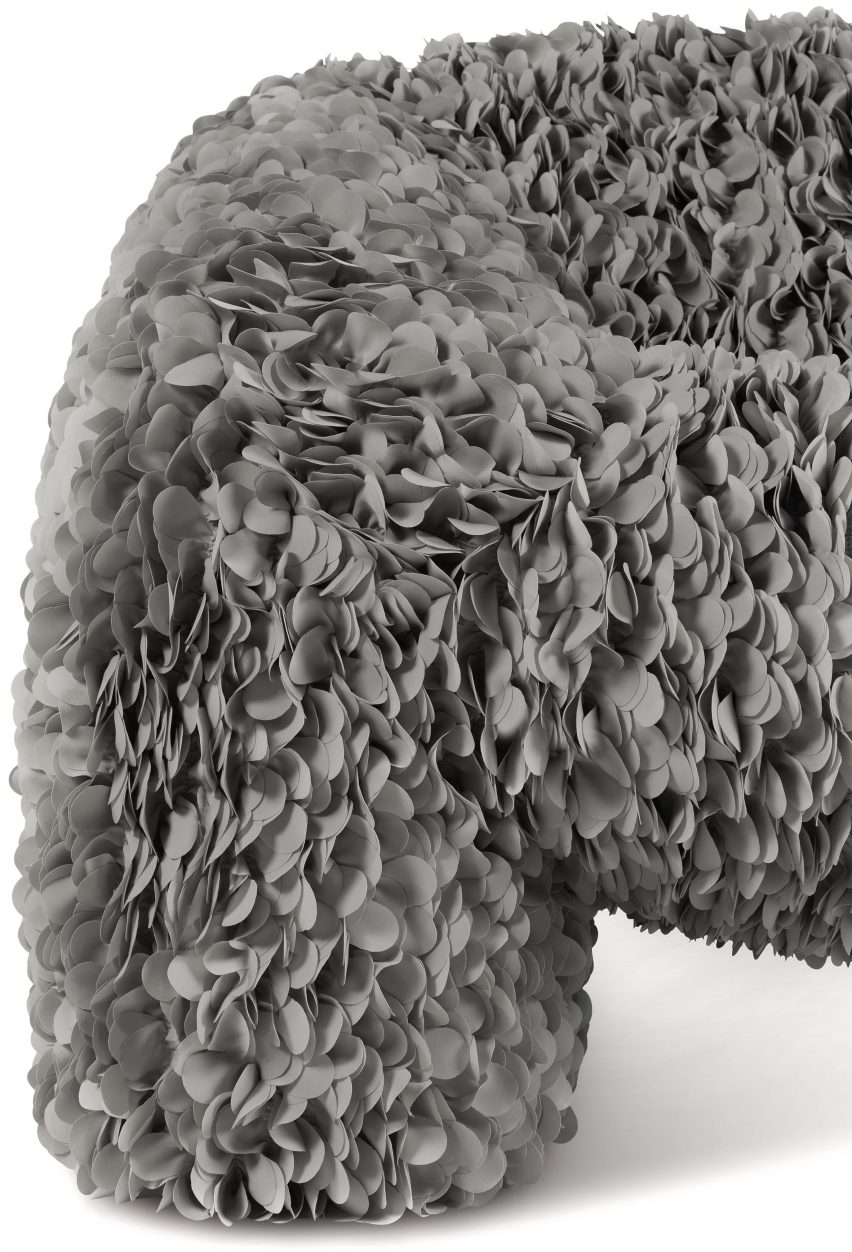
The updated version being released by Moooi features a steel frame, rather than wood, covered in injection-moulded foam.
It utilises the same technique as the limited-edition version for the textile covering, with lightweight polyester fabric laser-cut into long, scalloped strips that are then bunched together into clusters of 40 petals each.
Moooi used specialist sewing machines to sew the petal modules onto a thick, elastic backing textile that is then wrapped around the chair.
"We believe that the new version that Moooi is producing especially improves the design in terms of comfort, pushing it to its limits while making the chair accessible worldwide," Esqué explained.
In total, each chair is covered in around half a kilometre of petal fabric. A pared-back, petal-less version of the design will also be available in Moooi's catalogue of 371 different textiles, in a bid to ensure that the design can suit a range of different spaces and tastes.
"The Hortensia was considered impossible to produce – and yet here we are," said Bevers. "I love that designers are pushing us to new levels, to achieve things we never dreamt we were capable of."
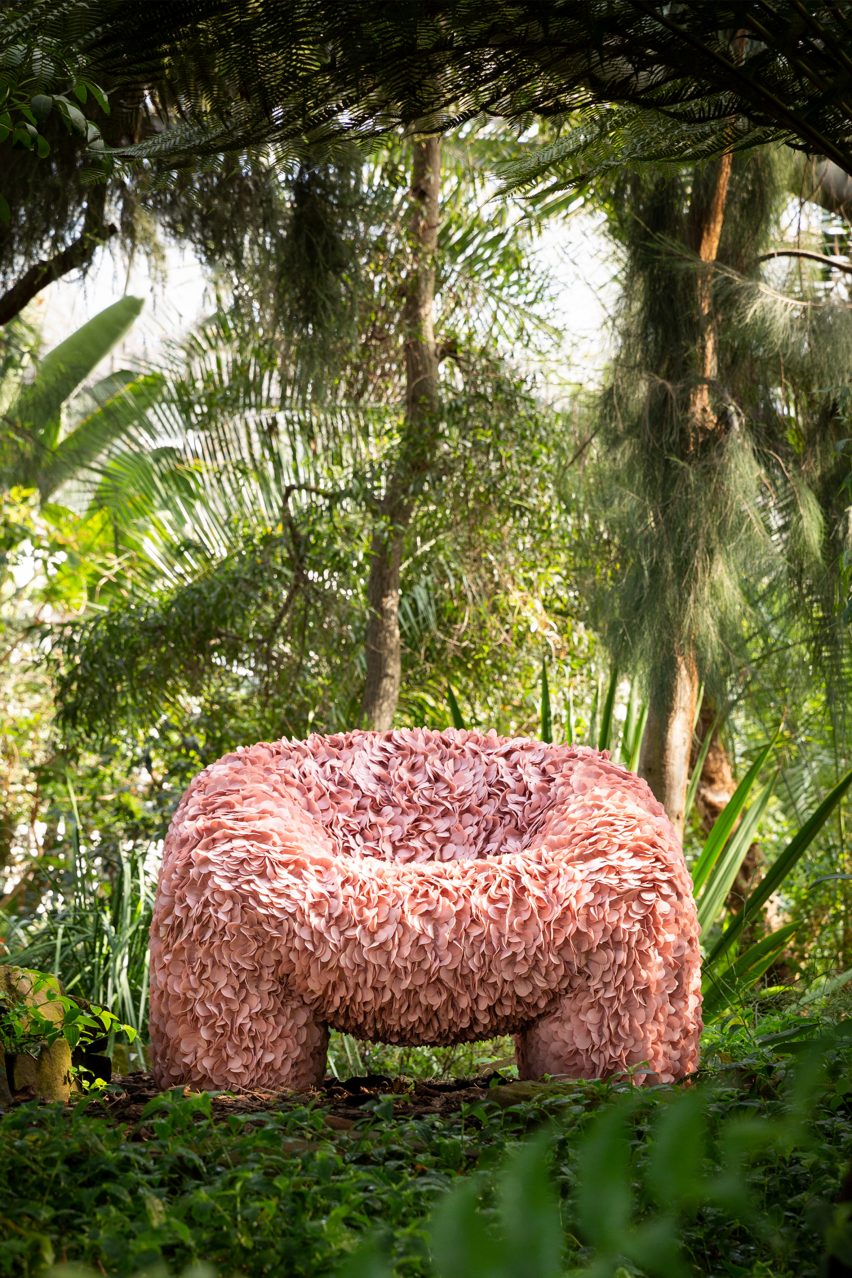
Earlier this year, Reisinger auctioned off ten pieces of virtual furniture as non-fungible tokens (NFTs), five of which are now being turned into real, physical objects and sent to their respective buyers.
He believes that this digital-first approach will disrupt the furniture industry by creating demand before supply.
"That's the key game-changer," he said. "The current model is based on producing massive quantities of a product, storing it in warehouses and then forcing the demand for it. Reversing the mindset and focusing on the real demand first can help us optimise production."
The designer was also one of the speakers taking part in Dezeen Club's first metaverse meet-up, where he discussed the rise of virtual worlds with Space Popular, Charlotte Taylor and Amber Jae Slooten of The Fabricant.